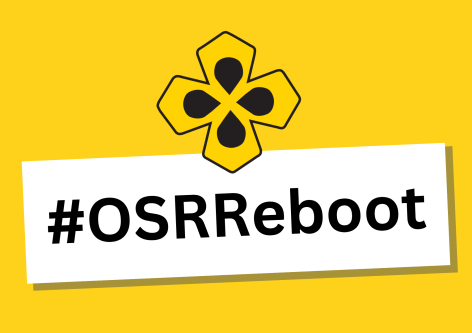
Oilseed rape (OSR) has been a cornerstone crop in UK agriculture for the past 60 years, offering a wealth of benefits that make it indispensable in today’s modern farming operations. From enhancing crop rotations to improving soil health and addressing cash flow challenges, OSR serves as a true multipurpose asset to farmers and the broader agricultural industry.
Agronomic Benefits - For UK farmers, incorporating OSR into crop rotations provides a crucial break from cereals, helping to disrupt weed, pest and disease cycles. This not only reduces reliance on chemical controls but also significantly boosts yields in subsequent first wheat crops. Moreover, OSR’s deep-rooting system and large root mass enhance soil structure, mitigating compaction and improving drainage. Its ability to thrive in pan-free soils makes it an ideal choice for sustainable land management practices.
From a weed management perspective, OSR production allows for the application of a different set of herbicides compared to cereals. This diversity in weed control strategies helps tackle problematic weeds such as blackgrass more effectively, ensuring long-term field productivity across the whole rotation.
Operational Efficiencies - As the first crop to harvest in the farming calendar, OSR enables an early start to fieldwork. This staggered timeline reduces workload pressures during the busiest time of year, particularly in wet conditions. Early harvesting also ensures that farm storage facilities are emptied before the main cereal harvest, optimising storage utilisation and minimising logistical bottlenecks.
Economic Advantages - OSR is a highly sought-after crop in the UK, with an annual demand of approaching 2 million tonnes. This year we expect 1.2 million tonnes to be imported. Its status as a freely traded commodity makes it an attractive choice for farmers, offering flexible cash flow management. The early harvest timing provides an opportunity for generating income during one of the most expensive periods of the crop year.
OSR plays a vital and unmatched role in the efficient utilisation of digestates, slurries, and specialist food waste products, materials that are restricted from use on cereal crops. These inputs can be applied to OSR fields in the autumn, slashing input costs while driving sustainable nutrient recycling. For a livestock sector generating significant quantities of waste, OSR offers a practical and environmentally sound solution, transforming these by-products into valuable resources for crop production.
Risk Management - From a risk management perspective, oilseed rape (OSR) operates under distinct market fundamentals, being more closely tied to crude oil markets due to its role in biofuel production. Unlike UK crops such as wheat, barley, and oats, which align with UK Feed Wheat futures, OSR is linked to the European Rapeseed futures contract. While commodities often trade in tandem, they can diverge, highlighting the value of diversifying farm portfolios. The past year illustrates this well: UK Feed Wheat dropped by £30 since January 2024, while rapeseed rallied by £80, peaking at a £100 increase.
A Sustainable Protein Source - From an animal feed perspective, OSR presents the UK farming industry with a highly nutritious alternative to imported soy. By promoting the cultivation of OSR domestically, the UK can reduce its reliance on soy imports, which carry potentially significant environmental and geopolitical risks. This aligns with broader efforts to enhance self-sufficiency and sustainability in UK agriculture.
Oilseed rape is far more than just another break crop. It is a cornerstone of UK food security, supporting domestic production and reducing reliance on imports. By including OSR in their rotations, farmers contribute to healthier soils, effective pest and disease management, and improved farm profitability. Moreover, the crop’s high demand and versatility align seamlessly with Labour’s economic growth strategies and nature recovery plans, which aim to bolster biodiversity and create a sustainable agricultural future.
CATCH UP ON THE FULL SERIES
Episode 1: Why the UK Must Rebuild Oilseed Rape
Episode 2: Food Security is National Security
Episode 3: A Billion Pound Opportunity: OSR and the Path to Economic Growth
Episode 4: Reviving OSR: A Lifeline for Pollinators and Biodiversity
